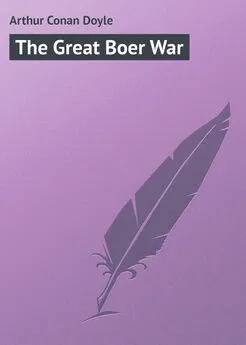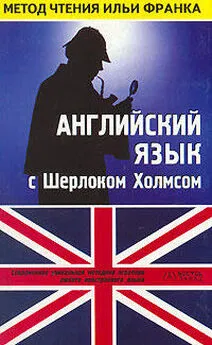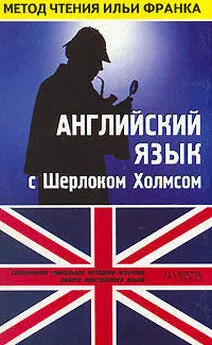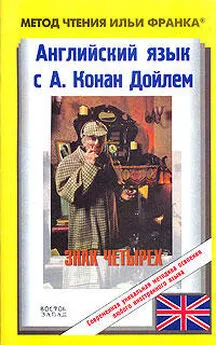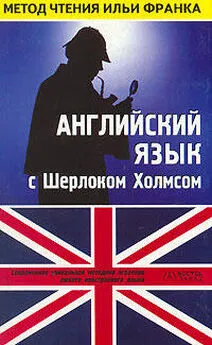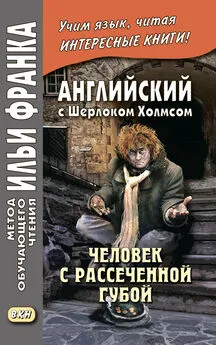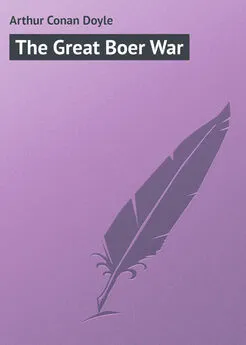Arthur Conan Doyle - The Great Boer War
- Название:The Great Boer War
- Автор:
- Жанр:
- Издательство:Array Иностранный паблик
- Год:неизвестен
- ISBN:нет данных
- Рейтинг:
- Избранное:Добавить в избранное
-
Отзывы:
-
Ваша оценка:
Arthur Conan Doyle - The Great Boer War краткое содержание
The Great Boer War - читать онлайн бесплатно ознакомительный отрывок
Интервал:
Закладка:
What will become of us or our children on that day when we may find ourselves in a minority of one in twenty without a single friend among the other nineteen, among those who will then tell us that they wished to be brothers, but that we by our own act have made them strangers to the republic?' Such reasonable and liberal sentiments were combated by members who asserted that the signatures could not belong to law-abiding citizens, since they were actually agitating against the law of the franchise, and others whose intolerance was expressed by the defiance of the member already quoted, who challenged the Uitlanders to come out and fight. The champions of exclusiveness and racial hatred won the day. The memorial was rejected by sixteen votes to eight, and the franchise law was, on the initiative of the President, actually made more stringent than ever, being framed in such a way that during the fourteen years of probation the applicant should give up his previous nationality, so that for that period he would really belong to no country at all. No hopes were held out that any possible attitude upon the part of the Uitlanders would soften the determination of the President and his burghers. One who remonstrated was led outside the State buildings by the President, who pointed up at the national flag. 'You see that flag?' said he. 'If I grant the franchise, I may as well pull it down.' His animosity against the immigrants was bitter. 'Burghers, friends, thieves, murderers, newcomers, and others,' is the conciliatory opening of one of his public addresses. Though Johannesburg is only thirty-two miles from Pretoria, and though the State of which he was the head depended for its revenue upon the gold fields, he paid it only three visits in nine years.
This settled animosity was deplorable, but not unnatural. A man imbued with the idea of a chosen people, and unread in any book save the one which cultivates this very idea, could not be expected to have learned the historical lessons of the advantages which a State reaps from a liberal policy. To him it was as if the Ammonites and Moabites had demanded admission into the twelve tribes. He mistook an agitation against the exclusive policy of the State for one against the existence of the State itself. A wide franchise would have made his republic firm-based and permanent. It was a small minority of the Uitlanders who had any desire to come into the British system. They were a cosmopolitan crowd, only united by the bond of a common injustice. But when every other method had failed, and their petition for the rights of freemen had been flung back at them, it was natural that their eyes should turn to that flag which waved to the north, the west, and the south of them – the flag which means purity of government with equal rights and equal duties for all men. Constitutional agitation was laid aside, arms were smuggled in, and everything prepared for an organised rising.
The events which followed at the beginning of 1896 have been so thrashed out that there is, perhaps, nothing left to tell – except the truth. So far as the Uitlanders themselves are concerned, their action was most natural and justifiable, and they have no reason to exculpate themselves for rising against such oppression as no men of our race have ever been submitted to. Had they trusted only to themselves and the justice of their cause, their moral and even their material position would have been infinitely stronger. But unfortunately there were forces behind them which were more questionable, the nature and extent of which have never yet, in spite of two commissions of investigation, been properly revealed. That there should have been any attempt at misleading inquiry, or suppressing documents in order to shelter individuals, is deplorable, for the impression left – I believe an entirely false one – must be that the British Government connived at an expedition which was as immoral as it was disastrous.
It had been arranged that the town was to rise upon a certain night, that Pretoria should be attacked, the fort seized, and the rifles and ammunition used to arm the Uitlanders. It was a feasible device, though it must seem to us, who have had such an experience of the military virtues of the burghers, a very desperate one. But it is conceivable that the rebels might have held Johannesburg until the universal sympathy which their cause excited throughout South Africa would have caused Great Britain to intervene. Unfortunately they had complicated matters by asking for outside help. Mr. Cecil Rhodes was Premier of the Cape, a man of immense energy, and one who had rendered great services to the empire. The motives of his action are obscure – certainly, we may say that they were not sordid, for he has always been a man whose thoughts were large and whose habits were simple. But whatever they may have been – whether an ill-regulated desire to consolidate South Africa under British rule, or a burning sympathy with the Uitlanders in their fight against injustice – it is certain that he allowed his lieutenant, Dr. Jameson, to assemble the mounted police of the Chartered Company, of which Rhodes was founder and director, for the purpose of co-operating with the rebels at Johannesburg. Moreover, when the revolt at Johannesburg was postponed, on account of a disagreement as to which flag they were to rise under, it appears that Jameson (with or without the orders of Rhodes) forced the hand of the conspirators by invading the country with a force absurdly inadequate to the work which he had taken in hand. Five hundred policemen and three field guns made up the forlorn hope who started from near Mafeking and crossed the Transvaal border upon December 29th, 1895. On January 2nd they were surrounded by the Boers amid the broken country near Dornkop, and after losing many of their number killed and wounded, without food and with spent horses, they were compelled to lay down their arms. Six burghers lost their lives in the skirmish.
The Uitlanders have been severely criticised for not having sent out a force to help Jameson in his difficulties, but it is impossible to see how they could have acted in any other manner. They had done all they could to prevent Jameson coming to their relief, and now it was rather unreasonable to suppose that they should relieve their reliever. Indeed, they had an entirely exaggerated idea of the strength of the force which he was bringing, and received the news of his capture with incredulity. When it became confirmed they rose, but in a halfhearted fashion which was not due to want of courage, but to the difficulties of their position. On the one hand, the British Government disowned Jameson entirely, and did all it could to discourage the rising; on the other, the President had the raiders in his keeping at Pretoria, and let it be understood that their fate depended upon the behaviour of the Uitlanders. They were led to believe that Jameson would be shot unless they laid down their arms, though, as a matter of fact, Jameson and his people had surrendered upon a promise of quarter. So skillfully did Kruger use his hostages that he succeeded, with the help of the British Commissioner, in getting the thousands of excited Johannesburgers to lay down their arms without bloodshed. Completely out-manoeuvred by the astute old President, the leaders of the reform movement used all their influence in the direction of peace, thinking that a general amnesty would follow; but the moment that they and their people were helpless the detectives and armed burghers occupied the town, and sixty of their number were hurried to Pretoria Gaol.
To the raiders themselves the President behaved with great generosity. Perhaps he could not find it in his heart to be harsh to the men who had managed to put him in the right and won for him the sympathy of the world. His own illiberal and oppressive treatment of the newcomers was forgotten in the face of this illegal inroad of filibusters. The true issues were so obscured by this intrusion that it has taken years to clear them, and perhaps they will never be wholly cleared. It was forgotten that it was the bad government of the country which was the real cause of the unfortunate raid. From then onwards the government might grow worse and worse, but it was always possible to point to the raid as justifying everything. Were the Uitlanders to have the franchise? How could they expect it after the raid? Would Britain object to the enormous importation of arms and obvious preparations for war? They were only precautions against a second raid. For years the raid stood in the way, not only of all progress, but of all remonstrance. Through an action over which they had no control, and which they had done their best to prevent, the British Government was left with a bad case and a weakened moral authority.
The raiders were sent home, where the rank and file were very properly released, and the chief officers were condemned to terms of imprisonment which certainly did not err upon the side of severity. Cecil Rhodes was left unpunished, he retained his place in the Privy Council, and his Chartered Company continued to have a corporate existence. This was illogical and inconclusive. As Kruger said, 'It is not the dog which should be beaten, but the man who set him on to me.' Public opinion – in spite of, or on account of, a crowd of witnesses – was ill informed upon the exact bearings of the question, and it was obvious that as Dutch sentiment at the Cape appeared already to be thoroughly hostile to us, it would be dangerous to alienate the British Africanders also by making a martyr of their favourite leader. But whatever arguments may be founded upon expediency, it is clear that the Boers bitterly resented, and with justice, the immunity of Rhodes.
In the meantime, both President Kruger and his burghers had shown a greater severity to the political prisoners from Johannesburg than to the armed followers of Jameson. The nationality of these prisoners is interesting and suggestive. There were twenty-three Englishmen, sixteen South Africans, nine Scotchmen, six Americans, two Welshmen, one Irishman, one Australian, one Hollander, one Bavarian, one Canadian, one Swiss, and one Turk. The prisoners were arrested in January, but the trial did not take place until the end of April. All were found guilty of high treason. Mr. Lionel Phillips, Colonel Rhodes (brother of Mr. Cecil Rhodes), George Farrar, and Mr. Hammond, the American engineer, were condemned to death, a sentence which was afterwards commuted to the payment of an enormous fine. The other prisoners were condemned to two years' imprisonment, with a fine of 2000 pounds each. The imprisonment was of the most arduous and trying sort, and was embittered by the harshness of the gaoler, Du Plessis. One of the unfortunate men cut his throat, and several fell seriously ill, the diet and the sanitary conditions being equally unhealthy. At last at the end of May all the prisoners but six were released. Four of the six soon followed, two stalwarts, Sampson and Davies, refusing to sign any petition and remaining in prison until they were set free in 1897. Altogether the Transvaal Government received in fines from the reform prisoners the enormous sum of 212,000 pounds. A certain comic relief was immediately afterwards given to so grave an episode by the presentation of a bill to Great Britain for 1,677, 938 pounds 3 shillings and 3 pence – the greater part of which was under the heading of moral and intellectual damage.
The raid was past and the reform movement was past, but the causes which produced them both remained. It is hardly conceivable that a statesman who loved his country would have refrained from making some effort to remove a state of things which had already caused such grave dangers, and which must obviously become more serious with every year that passed. But Paul Kruger had hardened his heart, and was not to be moved. The grievances of the Uitlanders became heavier than ever. The one power in the land to which they had been able to appeal for some sort of redress amid their grievances was the law courts. Now it was decreed that the courts should be dependent on the Volksraad. The Chief Justice protested against such a degradation of his high office, and he was dismissed in consequence without a pension. The judge who had condemned the reformers was chosen to fill the vacancy, and the protection of a fixed law was withdrawn from the Uitlanders.
Читать дальшеИнтервал:
Закладка:
